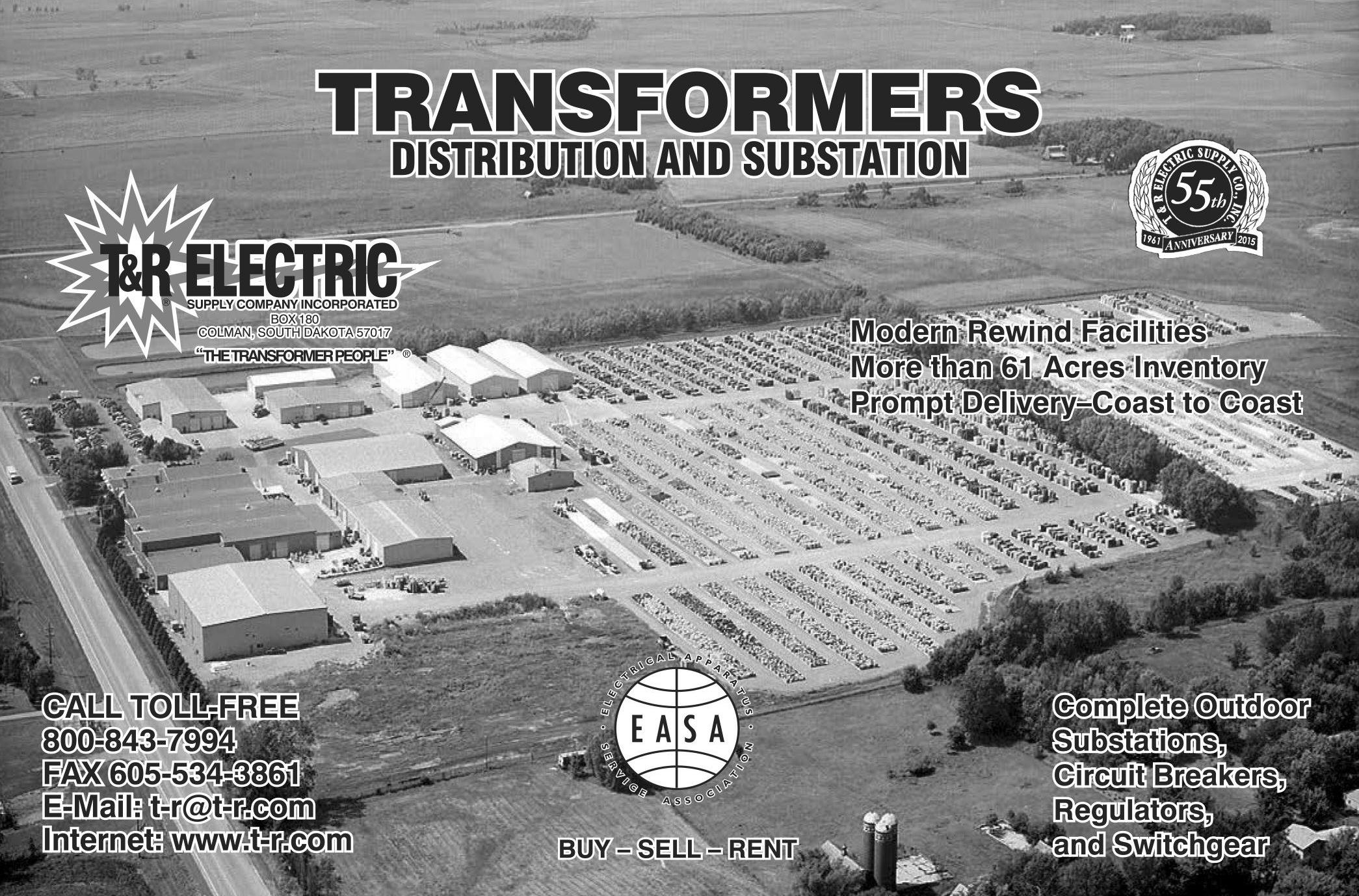
19 minute read
Municipal Elections: Q &A
Refer to the 2018 Municipal Elections Handbook for additional information. The handbook can be found on the SDML website under the Library section then Elections.
How is a candidate for municipal office nominated?
Advertisement
For the secondTuesday inApril election, no candidate for elective municipal office may be nominated unless a nominatingpetitionisfiledwiththefinanceofficernolater thanfivep.m.onthelastFridayinFebruaryprecedingthe day of election. The petition shall be considered filed if it is mailed by registered mail by five p.m. by the petition deadlinebeforetheelection.Suchpetitionshallcontainthe name of the candidate, his residence, his mailing address and the office for which he is nominated and be on the form prescribed by the state board of elections. The signer’s post office box number may be given in lieu of a street address if the signer lives within a municipality of the second or third class. The finance officer may only acceptnominatingpetitionsthatareontheprescribedform and were circulated and submitted pursuant to the provisions in chapters 9-13 and 12-6. If the nominating petition meets the statutory requirements, the filing of the petition shall constitute nomination (SDCL9-13-7).
The statutes for combined election dates, regarding filing deadlines,canbefoundatSDCL9-13-37,9-13-40,13-7-5 and 13-7-6.
How many signatures are required on a nominating petition for a municipal election?
In municipalities of the first and second class, if the candidate is to be voted for by the voters at large, a nominating petition shall be signed by five percent of the registered voters of the municipality based on the number of registered voters recorded by the county auditor on the second Tuesday in January of the year of the election. No petition needs to be signed by more than fifty voters.
If the candidate is to be voted for by the voters of a ward orsubdivisionofamunicipalityofthefirstorsecondclass having more than one ward or subdivision, a nominating petition shall be signed by five percent of the registered votersofthewardbasedonthenumberofregisteredvoters recorded by the county auditor on the second Tuesday in Januaryoftheyearoftheelection.Nopetitionneedstobe signed by more than fifty voters.
Inmunicipalitiesofthethirdclass,ifthecandidateistobe voted for by the voters at large, the nominating petition shall be signed by not less than three registered voters of the municipality. If the candidate is to be voted for by the voters of a ward of a municipality having more than one ward, the nominating petition shall be signed by not less than three registered voters of the ward.
No nominating petition may be circulated until on or after thefirstdayofcirculationforthatelection(SDCL9-13-9). All petition signers must be active registered voters in the municipality where the candidate is being nominated. All petition signers may only sign one petition for each office to be filled (SDCL 12-6-8), with the exception of a voter from a third class municipality is not restricted to the number of petitions which the person may sign (SDCL913-9).
If a person signs more than one petition (except in a third class municipality) the first valid signature presented counts.
5:02:08:00.04. Validity of petition signature when signer has signed more petitions than offices to be
SOUTH DAKOTA BASIC CODE Affordable Codification for Small and Mid-Sized South Dakota Municipalities A comprehensive model code of ordinances for municipalities featuring: Subject matter encountered by municipalities Annual state law updates A comprehensive index and a title devoted to your unique local ordinances Published by American Legal and the South Dakota Municipal League For more information call or e-mail deRicci Getty at 1-800-445-5588 or dgetty@amlegal.com
nominated. The first signature presented to the filing office which meets the requirements of SDCL 12-6-8 and §§ 5:02:08:00 and 5:02:08:00.01 is valid. The same signature which meets the requirements of SDCL 12-6-8 and §§ 5:02:08:00 and 5:02:08:00.01 on the next nominating petition presented to the filing office may also be valid if the person has not signed petitions exceeding the number of candidates required to be nominated for the same office.Any subsequent signature by such person on a nominating petition presented to the filing office that exceeds the number of candidates required to be nominated for the same office is not valid, except as provided in SDCL9-13-9.
Themembersofthegoverningbodyofamunicipalitymay choose to hold a municipal election on the first Tuesday after the first Monday in June. The finance officer shall publish the notice required in SDCL 9-13-6 between FebruaryfifteenthandMarchfirst.Nonominatingpetition may be circulated for signature until March first. Nominatingpetitionsshallbefiledundertheprovisionsof SDCL 9-13-7 by the last Tuesday in March. All other governmental responsibilities associated with holding electionsundertheprovisionsofchapter9-13shallbemet by the municipality (SDCL9-13-40).
Can anyone circulate a petition?
Yes, as long as the person is a South Dakota resident and at least 18 years of age (ARSD 5:02:08:13, SDCL 12-1-3 (9)).
Acirculator can sign the petition they are circulating.
May a candidate withdraw after filing a petition?
Yes. Any person who has filed a nominating petition pursuant to SDCL 9-13-7 may withdraw from the nomination by a written request, signed by the person and properly acknowledged and filed with the finance officer of the municipality.The name of a withdrawn or deceased candidate may not be printed on the ballot if the candidate withdraws or dies no later than five p.m. on the deadline day for filing nominating petitions (9-13-7.1).
If death or withdrawal of a candidate or candidates occurs atanytimepriortofivep.m.onthedeadlinedayforfiling nominating petitions results in there being no contest on theballot,thatballotneednotbevoted.Inaddition,ifthat contest constitutes the only ballot to be voted upon, then the election shall be canceled by the official in charge of the election and the unopposed candidate shall be issued a certificate of election (9-13-7.1).
What if only one candidate files for office? No election shall be held in any municipality, or ward thereof,whereinthereisnoquestiontobesubmittedtothe votersorwhereintherearenoopposingcandidatesforany office;incasetherearenoopposingcandidatestheauditor orclerkshallissuecertificatesofelectiontothenominees, ifany,inthesamemannerastosuccessfulcandidatesafter election (SDCL9-13-5).
Who is eligible to vote in a municipal election?
SDCL9-13-4.1 explains:
9-13-4.1.Registrationandresidencerequiredtovotein
municipal election—Residence defined—Challenge— Contest of election. No person may vote at any municipal electionunlessthepersonisregisteredtovotepursuantto chapter 12-4 and resides in the municipality at the time of the election. For the purposes of this section, a person resides in the municipality if the person actually lives in the municipality for at least thirty days each year, is a full-time postsecondary education student who resided in the municipality immediately prior to leaving for the postsecondaryeducation,orisonactivedutyasamember of the armed forces whose home of record is within the municipality. A voter’s qualification as a resident may be challengedinthemannerprovidedinSDCL12-18-10.No

election may be contested on the grounds that any nonresidentwasallowedtovoteifthenonresidentwasnot challenged in the manner provided in SDCL12-18-10.
SDCL12-1-4 explains: 12-1-4. Criteria for determining voting residence. For the purposes of this title, the term, residence, means the placeinwhichapersonhasfixedhisorherhabitationand to which the person, whenever absent, intends to return. Apersonwhohaslefthomeandgoneintoanotherstateor territory or county of this state for a temporary purpose only has not changed his or her residence. Aperson is considered to have gained a residence in any county or municipality of this state in which the person actually lives, if the person has no present intention of leaving. If a person moves to another state, or to any of the other territories, with the intention of making it his or her permanenthome,thepersontherebylosesresidenceinthis state.
What does it mean when it says a person must qualify for office?
In order to qualify, a person must be:
A. Aqualified voter of the municipality;
B. Reside in municipality three months before the election(SDCL9-14-2).Ifthepersonhasresided inanareaannexed,pursuanttochapter9-4,forat least three months, he may hold any municipal office.
C. Not a defaulter to the municipality (an individual that held a municipal position and absconded with city funds during their term of office; page 5-6ofSDMLHandbookforMunicipalOfficials). Thissectiondoesnotapplytoappointiveofficers (SDCL9-14-2).
D. Take an oath of office and give a bond (SDCL31-5). Alderman candidates must be registered voters and residentsofthewardtheyarerunningforwhennominated (SDCL9-8-1.1).
The person in charge of the election is responsible for notifying the person elected what they need to do to qualify. 9-13-28. Notice to persons elected—Time allowed forqualification.The finance officer, within two daysaftertheresultoftheelectionisdeclared,shallnotify each person elected to office of the person’s election. If a person does not qualify by filing an oath or affirmation of office in the usual form provided by law within ten days after the first meeting of the month next succeeding the election, the office becomes vacant.


If an official fails to qualify then a vacancy is created pursuant to SDCL3-4-1: 3-4-1. Events causing vacancy in office. An office becomes vacant if one of the following events applies to a member of a governing body or elected officer before the expiration of the term of the office; the person: (1) Dies; (2) Resigns; (3) Is removed from office; (4) Fails to qualify as provided by law; (5) Ceases to be a resident of the state, district, county, municipality, township, ward, or precinct in which the duties of the office are to be exercised or for which elected; (6) Is convicted of any infamous crime or of any offense involving a violation of the official oath of the office; or (7) Has a judgment obtained against the person for a breach of an official bond.
Who determines what size campaign signs can be, when
That is up to the local government to establish rules governing dates and sizes.
Pleasealsonotethat,unlessthecityhasadoptedcampaign finance laws or ordinances, a candidate does not have to put “paid for by… ” on the campaign materials.
Who selects and pays for election officials?
Each voting precinct shall be presided over by an election board consisting of a minimum of two precinct deputies and one precinct superintendent appointed by the governing body (if your wards all use the same polling place you only need to appoint one election board, SDCL 9-13-36). Each precinct superintendent and precinct deputyshallreceivecompensationwhichshallbefixedby the governing body (9-13-16.1). The state board of elections has adopted a form to be used in appointing election officials for school or municipal elections (05:02:05:11).Refertothekinshipchartwhenconsidering who you can appoint as your election officials. SDCL1215-14.3 gives you direction on this: Certain relatives of candidates are prohibited from serving on election and counting boards. No person may serve on an election or counting board who is a candidate or related by blood or marriagewithintheseconddegreetoacandidatewhoison the ballot in that precinct (SDCL12-15-14.3). Federal regulations have a special exception for Election Workers – you do not need to withhold Social Security or Medicare from their paychecks if they earn less than $1600 and do not hold any other city position. No 1099 needstobeissued.Iftheindividualearnsmorethan$1600 or their election pay plus their wage from their other city position is more than $1600 then you follow normal procedure for withholdings.
Any precinct superintendent or precinct deputy appointed undertheprovisionsofSDCL12-15-1shallbearegistered voterandaresidentoftheprecinctforwhichthepersonis appointed. If, by the time prescribed in SDCL 12-15-1, a sufficient number of members of the precinct election board are unable to be appointed, a vacancy may be filled by appointing any registered voter of the county in which the precinct is located provided the voter meets the party distribution required by SDCL12-15-3 (SDCL12-15-2).
What constitutes an official canvass?
The election returns shall be reported as soon as possible to the finance officer, and within seven days of the

election, the governing body shall canvass the election returns,declaretheresult,andentertheresultonitsjournal (SDCL9-13-24). Please note that the voter registration list is considered a public record.
A quorum of council needs to be present for the canvas since a majority vote to approve the canvas needs to be taken and recorded.
The person in charge of the election can destroy the voted ballotsandpollbookfromanon-federalelectionsixtydays following the election. However, they may not be destroyed if a recount or contest of the election is pending (SDCL12-20-31).
What is the procedure for absentee voting?
The application, receipt for absentee ballot, guidelines for acceptance, combined application return envelope, envelope for transmitting application, envelope for sending ballots, instructions to voter, official return envelope for ballots, official record of absentee ballots delivered to voters and envelopes for use with voting service and overseas ballots can all be found at ARSD 05:02:10. Anyregisteredvotermayvotebyabsenteeballotinoneof two ways – in person or by mail. Voters do not need to provide a reason in order to absentee vote (SDCL 12-191). It is important to note that absentee ballots have to be available no later than 15 days prior to the Election Day (SDCL9-13-21).
An absentee voter desiring to vote by mail may apply to the person in charge of the election for an absentee ballot. The application or request shall be made in writing and be signed by the applicant and state the applicant’s voter registration address. The application or request (except from overseas military or overseas citizen voters) shall contain an oath verifying the validity of the information contained in the application or request. The oath shall be administeredbyanotarypublicorotherofficerauthorized by statute to administer an oath. If the application or requestdoesnotcontainanoath,theapplicationorrequest shall be accompanied by a copy of the voter’s identificationcard.Theapplicationorrequestmaybeused to obtain an absentee ballot for all elections in that calendar year conducted by the jurisdiction receiving the application or request if so indicated (SDCL 12-19-2). If you receive an absentee ballot application that also indicates other elections that they want a ballot for, please

make sure to send a copy of the application to those jurisdictions.
At any time prior to an election, a voter may apply in person at the office of and to the person in charge of the election for an absentee ballot during regular office hours up to 5:00 p.m. on the day before the election (SDCL1219-2.1). If the voter applies in person, the voter shall complete a combined absentee ballot application/return envelopeandshowthepersoninchargeoftheelectionthe voter’s identification card as required in SDCL 12-18-6.1 or complete the affidavit as provided in SDCL12-18-6.2.
In the event of confinement because of sickness or disability, a qualified voter may apply pursuant to the provisions of SDCL 12-19-2 in writing for and obtain an absentee ballot by authorized messenger so designated overthesignatureofthevoter.Thepersoninchargeofthe election may deliver to the authorized messenger a ballot to be delivered to the qualified voter.An application for a ballot by authorized messenger must be received by the personinchargeoftheelectionbefore3:00p.m.thedayof the election. If an application designating an authorized messenger also indicates a request for an absentee ballot for any future election, such absentee ballot shall be mailed to the address provided on the application. If no address is provided, the ballot shall be mailed to the person’s voter registration address (SDCL12-19-2.1). The voter must sign a statement on the absentee ballot envelope prior to returning the ballot. All voted ballots must be returned to the person in charge of the election in time to be delivered to the appropriate polling place prior to the closing of the polls.
Any voter identified as being covered by the Uniformed and Overseas Citizens Absentee Voting Act (42 U.S.C. 1973ff-1)asofJanuary1,2011,maysubmitanapplication or request for an absentee ballot by facsimile or emailed imagetothepersoninchargeoftheelection.Thesecretary of state may authorize a person in charge of an election to accept an application or request for absentee ballot pursuanttothissectionthroughthesystemprovidedbythe Office of the Secretary of State (SDCL12-19-2.3).
Afinance officer is not authorized in law to go to nursing facilitiesorcarecentersetc.tohelpcitizensvoteabsentee. Those individuals need to request an absentee ballot through the regular process.Afinance officer or other city employee would be able to drop off absentee ballot applications. Only if a voter puts the finance officer as

their authorized messenger would the finance officer be able to bring a ballot to them to vote. We encourage finance officers to not do this since you are the person in charge of running the election. The administrator at the facility could be the authorized messenger.
If any voter who had previously filed an application or request for an absentee ballot submits another application or request for the same election with an updated address, thecountyauditorshallsendanabsenteeballottothenew address. If any voter who had previously filed an application or request for absentee ballot appears at the county auditor’s office, the voter may complete another application and be allowed to vote an absentee ballot. If any voter who filed an application or request for absentee ballot notifies the county auditor that the voter never received that ballot, the voter may request that another ballot be sent to the same address. The provisions of this section only apply to a person who has not voted or returned an absentee ballot (SDCL12-19-2.4).
If a registration form is received simultaneous with an absentee ballot request and prior to the registration deadline,theabsenteeballotprovidedshallbebasedonthe submitted registration form (SDCL12-19-3).
Whatistheprocedureforcombiningelectionswiththe school district or county?
With School District: The members of the governing body of a municipality may choose to hold a general municipal election in conjunction with a regular school district election. The combined election is subject to approval by the governing body of the school district.The combined election shall be held on the regular date set for either the general municipal election or the school district election and all dates associated with either election pursuant to chapters 9-13 and 13-7 shall be adjusted accordingly. Expenses of a combined election shall be sharedinamanneragreeduponbythegoverningbodiesof the municipality and the school district. All other governmental responsibilities associated with holding elections under the provisions of chapters 9-13 and 13-7 shall be shared as agreed upon by the governing bodies (SDCL9-13-1.1).
With County: The members of the governing body of a municipality may choose to hold a municipal election in conjunction with the regular June primary election. The combined election is subject to approval by the county commissions of the counties in which the municipality is located. Expenses of a combined election shall be shared

in a manner agreed upon by the governing body of the municipality and the county commissions involved. All other governmental responsibilities associated with holdingelectionsundertheprovisionsofchapter9-13and Title 12 shall be shared as agreed upon by the governing bodies. The finance officer shall publish the notice required in SDCL 9-13-6 between February fifteenth and March first. No nominating petition may be circulated for signatures until March first. Nominating petitions shall be filed under the provisions of SDCL 9-13-7 by the last Tuesday in March. The finance officer shall certify to the appropriate county auditor the candidate names and ballot languagetobevotedonbythefirstThursdayafterthelast Tuesday in March (SDCL9-13-37).
What are the hours for municipal elections?
Thepollsshallbeopenedatthehourofseveno’clocka.m. and remain continuously open until seven o’clock p.m., standard time or daylight savings time, whichever is in effect. However, no polling place may be closed at any electionuntilallthevoterswhohavepresentedthemselves at the polling place inside or outside for the purpose of voting prior to the time of the closing of the polls shall have had time to cast their ballots (SDCL12-2-3, 9-13-1). Are candidates in municipal elections required to file financial interest statements?
Yes,ifinafirstclassmunicipality.Everypersonelectedor appointedtoanycivilofficeshall,beforeenteringuponthe duties thereof, qualify by taking an oath or affirmation to support the Constitution of the United States and of this state, and faithfully to discharge the duties of his office, naming it; and by giving a bond, when one is required, conditioned that he will faithfully and impartially discharge the duties of his office, naming it, and render a true account of all money, credits, accounts, and public personal property requiring inventory, as defined in rules issued by the commissioner of the bureau of administration, that shall come into his hands as such officer,andpayoveranddeliverthesameaccordingtolaw (SDCL 3-1-5). Any candidate for county commissioner, school board member in a school district with a total enrollment of more than two thousand students, or commissioner,councilmember,ormayorinanyfirstclass municipality, shall file a statement of financial interest with the office at which the candidate's nominating petitionsarefilednotmorethanfifteendaysafterfilingthe candidate's nominating petitions or, if otherwise nominated,notmorethanfifteendaysafterthecandidate's nomination is certified. Any violation of this section is a petty offense. An intentional violation of this section is a Class 2 misdemeanor. (SDCL12-25-30).









B or ok ni sg
6 32.69.650 |
iS 24
o | o To er Fll . 1e .558 3.6323
u s lalx F | eV r illmi on | T Rapi id C t
24 y | M bli ank
ww .w b nna era asso setaci oc. m
Do any campaign finance reporting requirements apply to municipal elections?
Onlyfor1stclassmunicipalityballotquestioncommittees or if a city has adopted campaign finance ordinances.
Campaign finance requirements apply to each statewide office, legislative office, statewide ballot question, county offices and ballot questions in counties with population greater than ten thousand according to the most recent Federal census, ballot questions in first class municipalities, and school district offices and ballot questions in school districts with more than two thousand average daily membership. Any municipal or school district election covered by this chapter shall conform to the contribution limits applicable to legislative offices. This chapter does not apply to the unified judicial system, nor does this chapter apply to any township or special purpose district offices or ballot questions or elections for municipal offices. However, the governing body of any county, township, municipality, school district, or special purposedistrictnototherwisecoveredbythischaptermay adoptanordinanceorresolutiontomaketheprovisionsof this chapter, with or without amendments, applicable to county, township, municipal, school district, or special purpose district elections. (SDCL12-27-39). Municipalities have the option of adopting provisions of state law regarding campaign financing for organizations contributing to ballot question committees. If such an ordinance is adopted, information to be contained in the statements is contained in SDCL 12-27-19 and 12-27-22 through 28.
The Secretary of State’s office has a campaign finance disclosure guidelines book available upon request.
Who can register voters?
Thecountyauditorhascompletechargeofmaintainingthe voter registration records in the county. Voter registration shall be conducted by county auditors and municipal finance officers.Voter registration shall be available at the Secretary of State’s office and at those locations which provide driver’s licenses; food stamps; Temporary Assistance for Needy Families; women, infants, and children nutrition programs; Medicaid; military recruitment; and assistance to the disabled as provided by the Department of Human Services (SDCL12-4-2).
Voter registration forms can be printed at your local printing company or you can print the form off of the Secretary of State’s website. Go to www.sdsos.gov and clickonRegistertoVoteundertheElections&Votingtab.





Your advanced metering technology partner.
With advanced metering technology, your business can be more effi cient, more profi table and more service oriented than ever before.
Automated Meter Reading (AMR) and Advanced Metering Infrastructure (AMI) are more than industry buzzwords – they provide a steady fl ow of valuable data to achieve your business goals. It also gives consumers a better understanding of their own usage habits. The result is better business and improved stewardship of our water resources.
Fargo 1917 1st Ave. N (701) 293–5511
Bismarck 1201 Airport Rd. (701) 258–9700
Blaine 1694 91st Ave. NE (763) 560–5200
FERGUSON.COM/WATERWORKS
©2017 Ferguson Enterprises, Inc. 0117 380871





